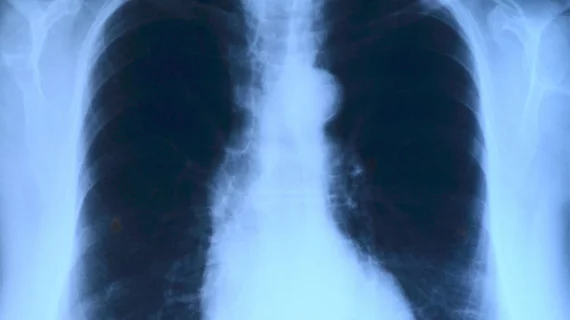RadLogics OK’d for chest x-ray AI
The FDA has granted RadLogics 510(k) clearance for its AI-Powered chest x-ray pneumothorax application, the company announced Tuesday.
Operating in tandem with existing workflow applications, the application, which is trained via pattern recognition, leverages an AI algorithm to analyze images for features that suggest the presence of pneumothorax. It then makes case-level output available to a PACS workstation for worklist prioritization. The application was validated and trained by a multicenter study for detecting pneumothorax in hundreds of chest x-rays.
An additional study was conducted to further validate the use of chest x-ray solutions like AI-Powered. A team of researchers led by Professor Hayit Greenspan of Tel Aviv University in Tel Aviv, Israel, along with members of RadLogics’ algorithm development team, investigated the severity of pneumonia in COVID-19 patients through a longitudinal study of disease progression.
Using a deep learning model for simultaneous detection and segmentation of pneumonia in chest X-ray images and generalized to COVID-19 pneumonia, the researchers found that measuring disease severity through a “Pneumonia Ratio” enabled them to build a disease-extend profile over time for hospitalized patients.
“Our proposed solution has the potential to generate quantitative measures for improved diagnosis, facilitation of patient follow-up, and reduction in observer-dependent bias to provide overall decision support,” the authors write in the study.
The study is now in pre-print and has been submitted to the JBHI’s IEEE Journal for review and potential publication.
